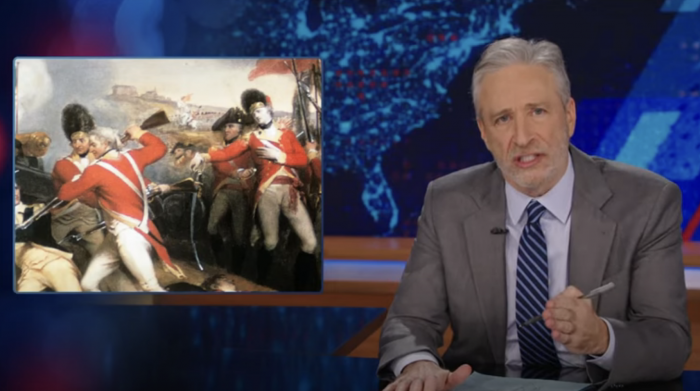

The Whistleblower Review: Decent Film, Gut-Wrenching Story
By Dustin Rowles | Film | August 16, 2011 |
By Dustin Rowles | Film | August 16, 2011 |
Whistleblower is the type of based-on-true-events movie where it’s difficult to separate the power of the story from the film itself. The film tells the story of Kathryn Bolkovac, a Nebraskan police woman who decides to take a job working for a private security firm as a United Nations peacekeeper in Bosnia. What she discovers is a wide-scale child sex-slave and human-trafficking scandal involving her own company, a military contractor, Democro Corp (a pseudonym for the real-world DynCorp). The Whisteblower tracks how she uncovers the scandal and her frustrated attempts to rat out her employers.
It’s a harrowing story, often hard to watch, especially in parts where director Larysa Kondracki rightfully wants to highlight how brutal and messed up the sex-slave industry is. These are girls, 12-15 years old, who are being sold hourly, daily, or permanently; and as sex slaves, the uncaring, unfeeling, asshole men are allowed to do whatever they wish, even if that means cigarette burns or forced sodomy using a metal pipe while the other prostitutes look on in horror.
It’s easy while viewing The Whistleblower to allow the righteous indignation, the anger, and the fury to get ahead of critical observations. The script is clumsy, the pacing is poor, and it’s difficult to know if the narrative is wildly uneven because Kondracki (who co-wrote the script with Eilis Kirwan) was trying to stay overly faithful to the events or if she failed in her efforts to take the kinds of dramatic liberties that might effectuate a better film. The result, in either respect, is a movie that’s more important than it is good.
Rachel Weisz does a more than manageable job with what she has to work with, namely radiant beauty and an English accent that she has to hide behind a role that miscast her as a dowdy, twice-divorced, hard-living Nebraska cop. Weisz captures the emotions of a woman who stumbles upon the discovery that her employers are helping to run a sex-trafficking scheme, but she doesn’t suit the aesthetic. Monica Belluci, who has a small role as a cold bureaucrat unable to help, fares better, and Kondracki wisely has Belluci pull her tightly pull her hair back to help ease confusion some have with the physical similarities between Belluci and Weisz.
In the end, it’s not really about the performances of Weisz, Belluci, David Strathairn and even Vanessa Redgrave (in a small role); they are vessels — as is the movie itself — to raise awareness of the sex-trade industry in that part of the world, to drive home corporate America’s involvement (and the State Department’s decision to look the other way), and to expose a little-discussed dark period in U.N. history. People charged with protecting citizens were the very ones facilitating violence; worse still, the company responsible for attempting to cover all of this up is still in charge today. That is, as the kids say, “fucked up.”
The film itself is not particularly well put together — it staggers, it lacks momentum, there’s an over-hyped sense of paranoia, it’s at times insulting of our intelligence, and it fizzles toward an unsatisfactory conclusion — but the power of the story transcends the filmmaker’s efforts. Better news, still, is that the awareness of the atrocities that The Whistleblower is trying to raise are beginning to work. U.N. Secretary General Ban Ki-moon has seen the movie, and on the suggestion of Kondracki, plans to screen it to top U.N. officials and representatives of governments that supply peacekeepers to U.N. missions.
Baby steps.
← You Can All Just Kiss Off into the Air: In Memory of the Best Tweets from "Sons of Anarchy" Showrunner Kurt Sutter | Look, Pants! New Immortals Trailer Crushes Those Nasty Comparisons To The Banana Hammock Sausagefest That Was 300 →

Jon Stewart Forcefully Makes the Case Against the Former President's Patriotism
Is The Royal Family Trying to Make It Look Like Kate Middleton’s Dead?
What’s Old Is New Again: Old Hollywood Glamour Glitters at the 2024 Oscars
Al Pacino Presents Best Picture Oscar, Confuses Everyone
The Dangerous Lie Of 'TradWives'
A Legendary Horror Franchise Is Headed To Television
More Like This
Al Pacino Presents Best Picture Oscar, Confuses Everyone
Kyle Mooney's Horror-Comedy 'Y2K' Goes Too Hard on Kyle Mooney's Sense of Humor
'Imaginary' Almost Sucks
Box Office Report: Kung Fu Sandworms
The 2024 Oscars Were Great Right Up Until the End
Reviews